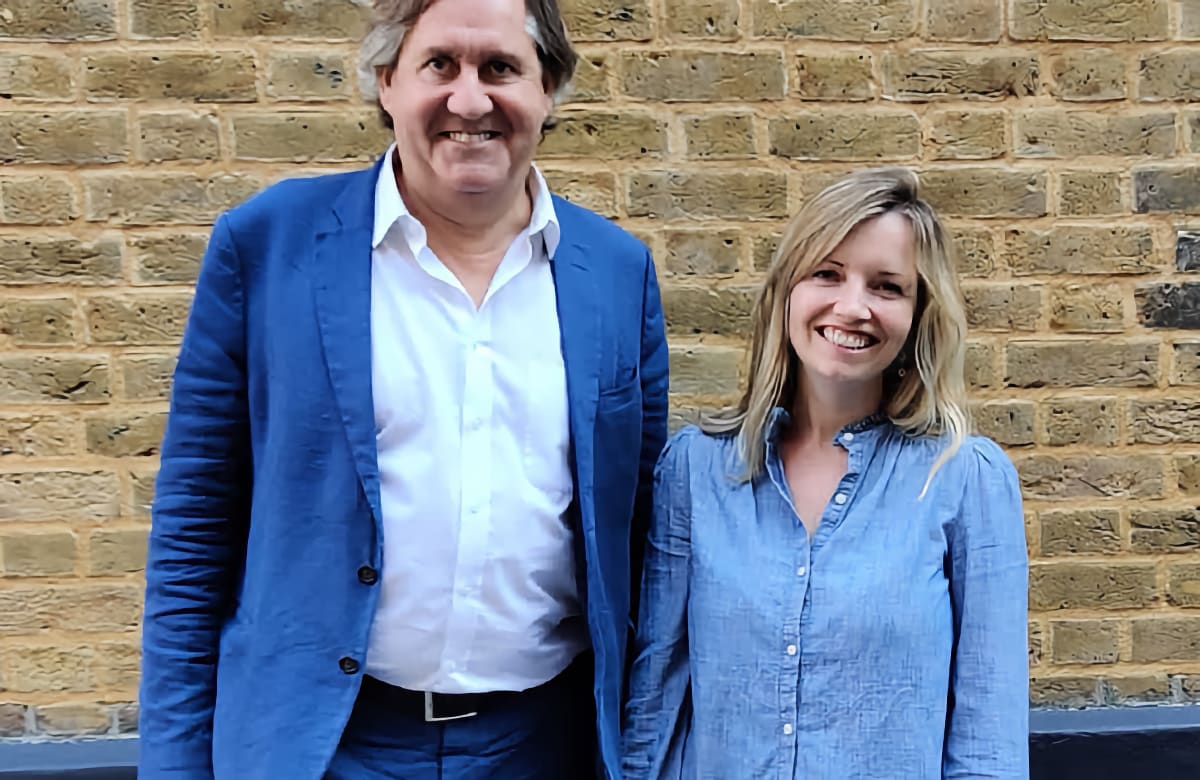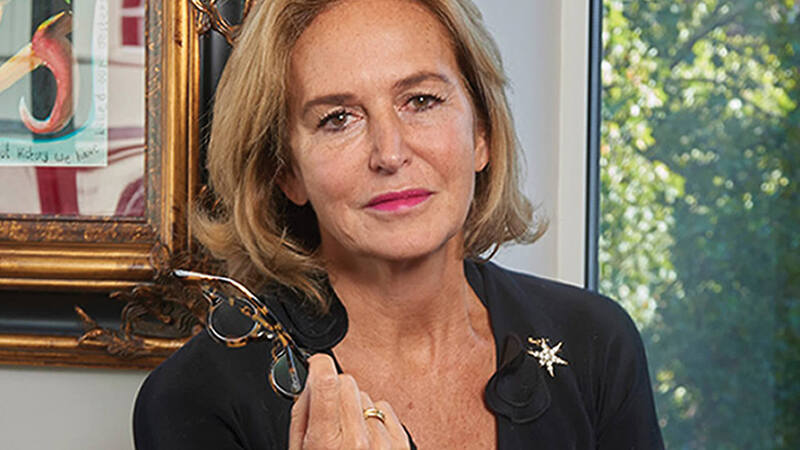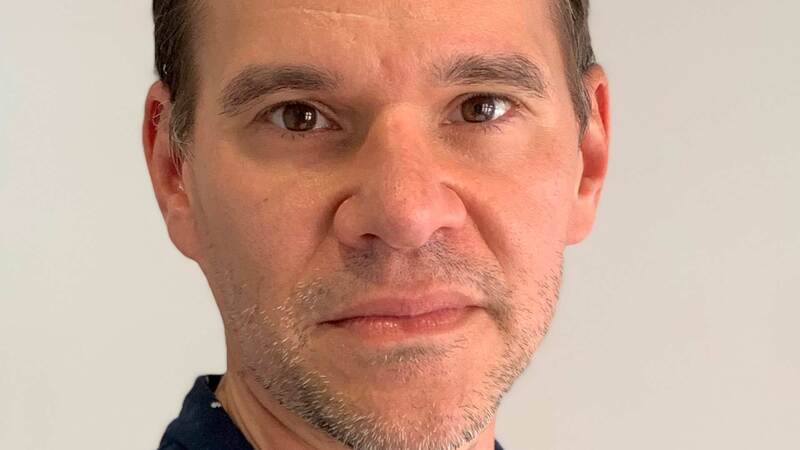You are viewing your 1 free article this month. Login to read more articles.
Compatriots join forces as Mulcahy Sweeney agency plots path forward
Earlier this year, Sallyanne Sweeney joined Ivan Mulcahy in the directorship of their literary agency, and now with two names above the door, they explain their plans to grow further still
Eight years ago when Sallyanne Sweeney was asked by her fellow native Dubliner Ivan Mulcahy to join what was then Mulcahy Associates, she didn’t immediately jump at the chance. It was not that they didn’t gel or their client rosters were incompatible. No, Sweeney says, perhaps only half-joking: “It was that being the Irish agent in London was my USP.”
She soon put that objection aside and she and Mulcahy have had a successful run with their literary agency, which sits within MMB Creative, an umbrella group which also includes the talent agency Milburn Browning and the voiceover firm Fuller Voices. Earlier this year, Sweeney became a full director and the company was renamed Mulcahy Sweeney.
Mulcahy says that “it was completely obvious and inevitable” that Sweeney would have her name above the door. “When we first started working together—and she’s at least a generation younger than me—her goal was to build and develop her list, but I always had it in mind that this was a long-term relationship and it got to a point where Sallyanne needed recognition for the success of what she’s built. You’re either growing or you’re dying as an agency, and you need to demonstrate to the market that the business has longevity and a longer-term plan.”
You’re either growing or you’re dying as an agency, and you need to demonstrate to the market that the business has longevity and a longer-term plan
Mulcahy Sweeney aims to grow even more and it is looking to add another agent to the team. Sweeney says: “We aren’t in a rush, as I think it’s more important to find someone who is the right fit. Because we are both very broad, we’ve always thought that a third person to come in would have their own particular focus, maybe commercial fiction, but we won’t be that restrictive as lists develop over the years.”
It is true that Mulcahy and Sweeney have wide-ranging rosters. Sweeney is one of the few agents in London who has an equally weighted list of authors and illustrators that goes from picture books to adults, such as Look Up! duo Nathan Bryon and Dapo Adeola, Juno Dawson, former Quercus editor and upcoming début novelist Niamh Mulvey and Roisin Meaney. Mulcahy reps more non-fiction, such as the bestselling Cambridge economist Ha-Joon Chang and “Succession” star Brian Cox, whose upcoming memoir he sold to Quercus for £500,000. But he has authors who span non-fiction and fiction, such as Robert Webb, plus some novelists, including Women’s Prize for Fiction winner Lisa McInerney.
Mulcahy says: “I’ve absolutely no rules. Some might say there’s not much of a pattern to what I take on. I think both of us will take on anything we fancy. Right now I’m reading a weird Celtic mythology/science fiction/apocalyptic thriller kind of thing, which I am totally captivated by. I’ve never sold fantasy or future fantasy and”—Mulcahy motions to Sweeney sitting next to him— “don’t tell Sallyanne but I may take it on. But we both have this sort of freedom [to sign up the authors].”
Branching out
That freedom and the wish for intellectual stimulation was why Mulcahy founded the agency in 2003, after something of a career epiphany. He had moved to London after graduating from Trinity College to take a post at the media and news giant Reuters, with whom he stayed for some 20 years. He moved up the ladder, also working in Reuters’ New York, Dublin and Stockholm offices—at the last he led a staff of 300 and the company’s entire Nordic operation. He says: “I basically woke up when I was about 40, realising that I didn’t feel any particular connection to what I was doing.” And though he did not have many contacts in publishing, he felt he had what it took to find raw talent in a manuscript.
Sweeney also moved to London after university (an undergraduate at Trinity and an MPhil at Queen’s College, Cambridge). She went straight into the publishing world, and joined Mulcahy after six years at Watson, Little. Joking about their shared Irishness aside, the two did have several long conversations before Sweeney joined. She says: “I could have happily stayed at Watson, Little forever, but if there was a time for me to move, it was then. I think one of the things that swayed me, coming from a very long-established agency, was the opportunity to work with someone who came from outside publishing and could see things a bit differently.”
Like every agency, the Covid era has had its trials. Early on in the pandemic, Mulcahy had a bit of ruction with a publisher—he wanted a début novelist’s title postponed but the publisher went ahead and released it in lockdown. Mulcahy says: “It didn’t disappear without a trace, but it probably sold a third of what it would have. It just makes the career of the author that much more difficult. It was kind of an object lesson... your author’s interest and the publisher’s interest were not necessarily aligned in that moment.”
That moment in part led Mulcahy Sweeney to not submit many manuscripts to publishers for most of 2020, and made the two a little more cautious in taking on new authors. But as the sales started cascading in (particularly to the conglomerate publishers) during the lockdowns, the marketplace shifted. “We sold everything, I mean everything we had, at the end of 2020,” Mulcahy says. Sweeney adds: “But it was very late. We had one of our best years, but I probably sold more in December than in the previous 10 months put together.”
Lucrative time
Mulcahy Sweeney will not be going to Frankfurt this year, so it will be two years without any international book fairs. Yet its translation rights business—which is run by rights director Samar Hammam—has had a lucrative couple of years. “There has been a difference of timing without the fairs,” Sweeney says, “which might be a positive. You used to sell your book when it was coming out and do all your translation rights deals then. And that would be it. Now I find things are slower, but you can keep pushing a book and have longer conversations that aren’t just around the fairs.”
Having said that, both Sweeney and Mulcahy miss the spontaneity of random book fair meets, and Sweeney notes that “some of the most fruitful meetings I have had at fairs have been at the airport on the way back. And it even helps visually when you walk around the stands to see how publishers present their books—particularly on the children’s side. You can’t re-create that online. And even though you always come back from book fairs exhausted, you tend to be lifted and look at your list in a new way.”
Mulcahy adds: “It’s an intangible and kind of a palpable sense that you are part of this community. Even though it’s a big industry, it is a universe of individuals that come together—and you can build these connections.”














